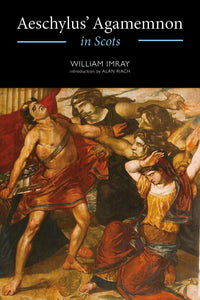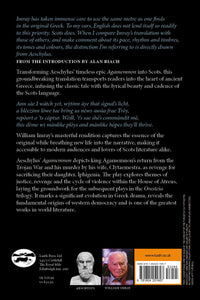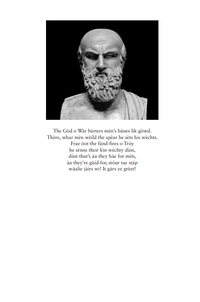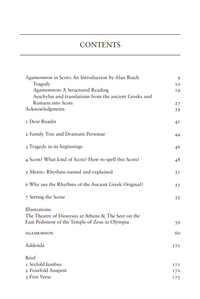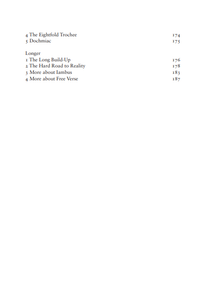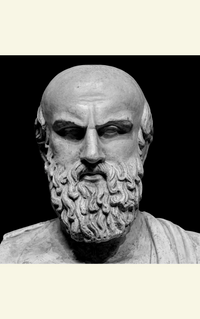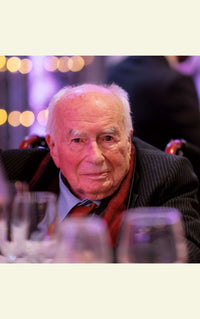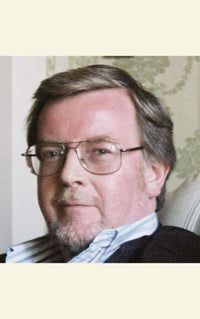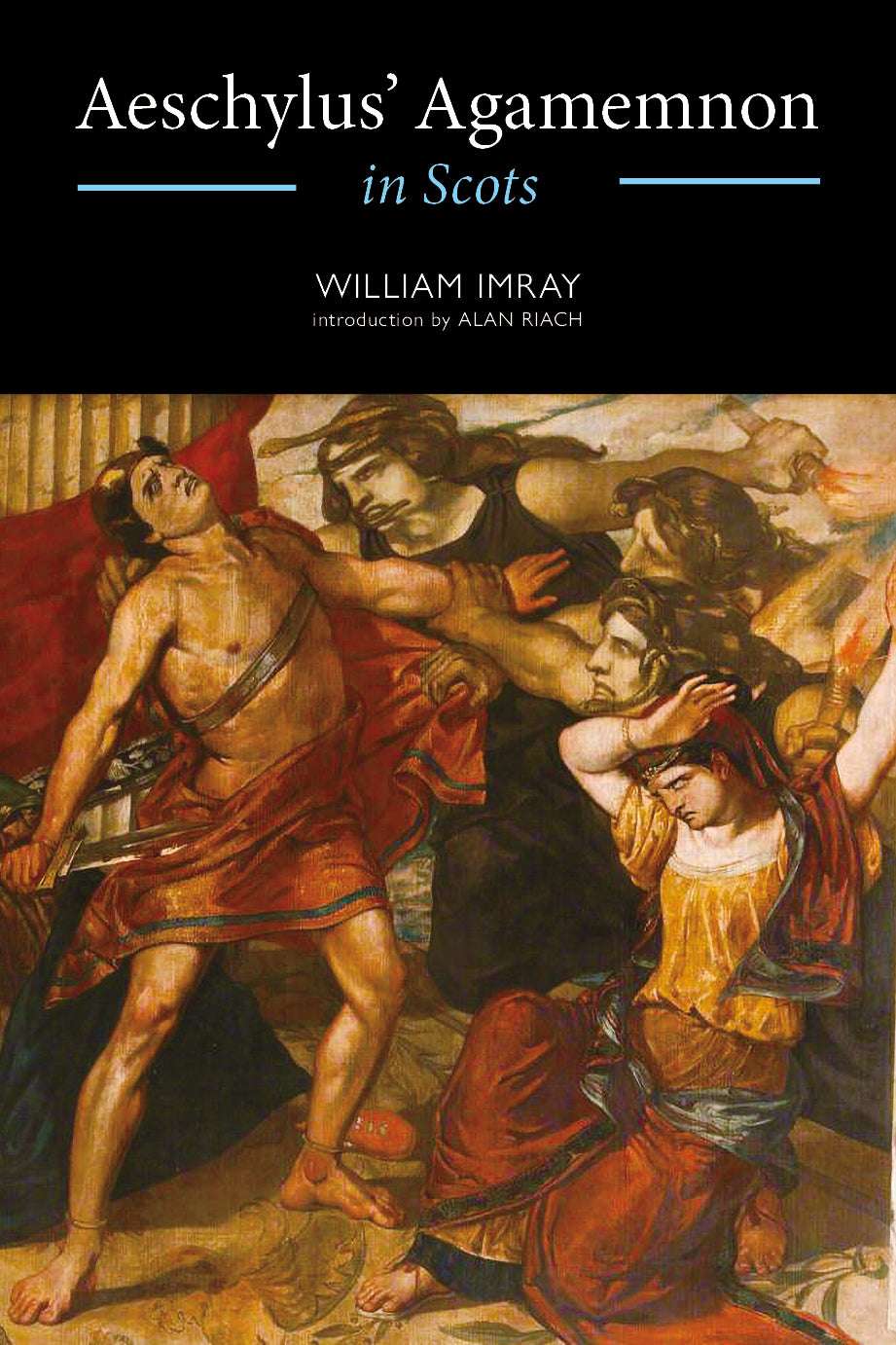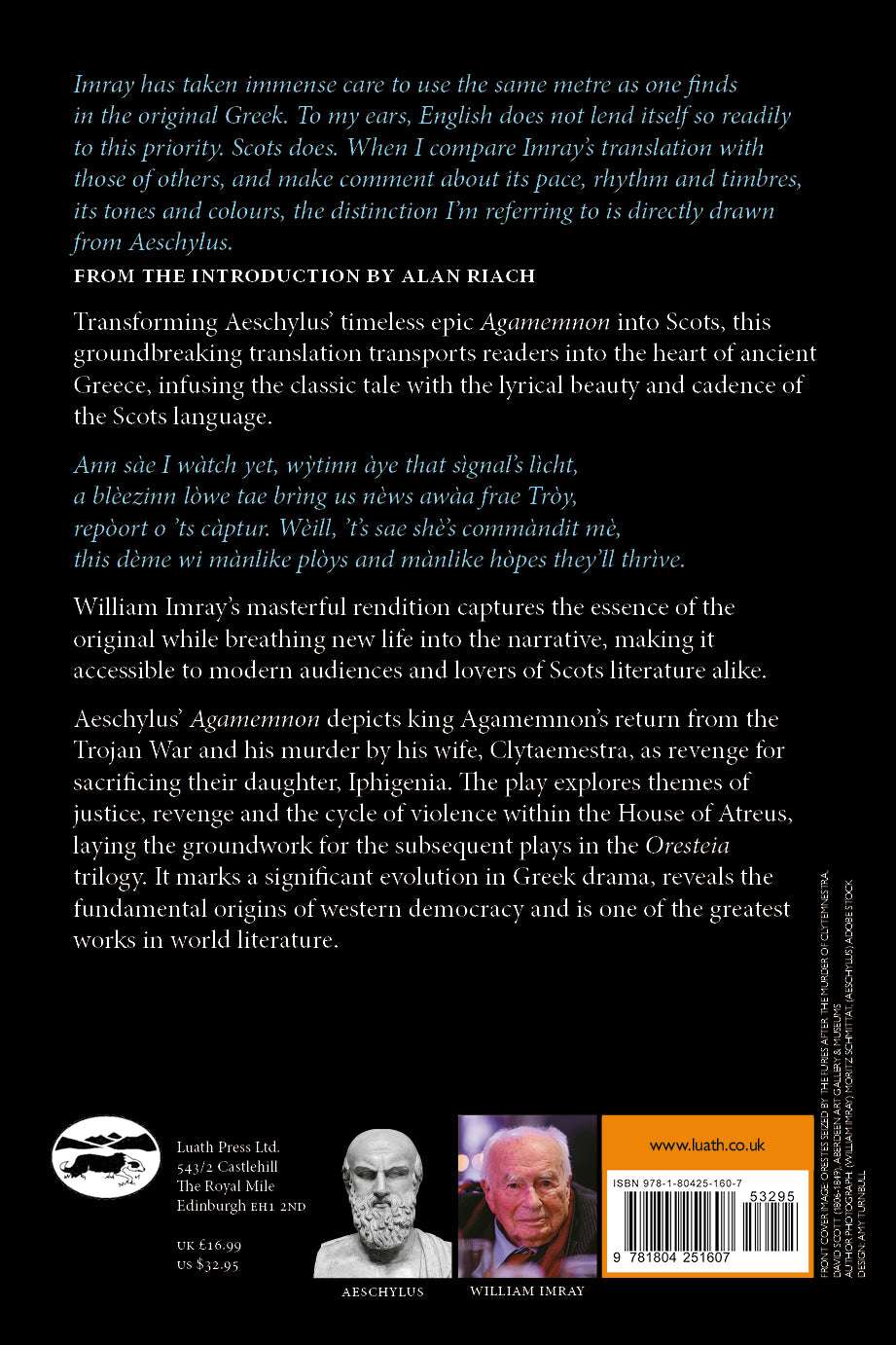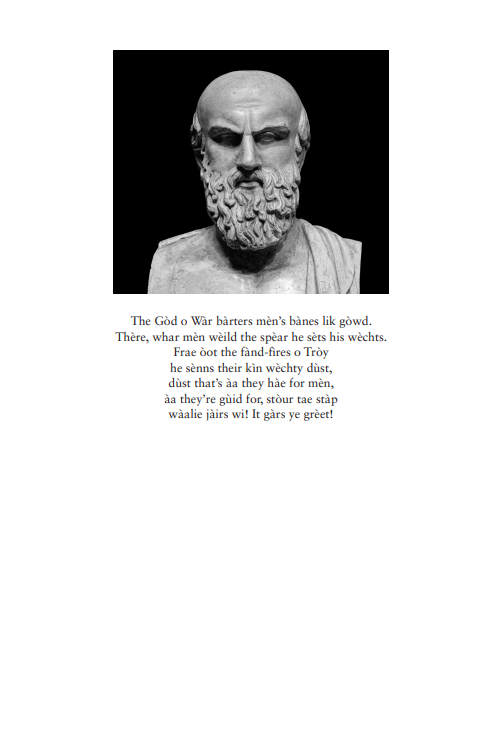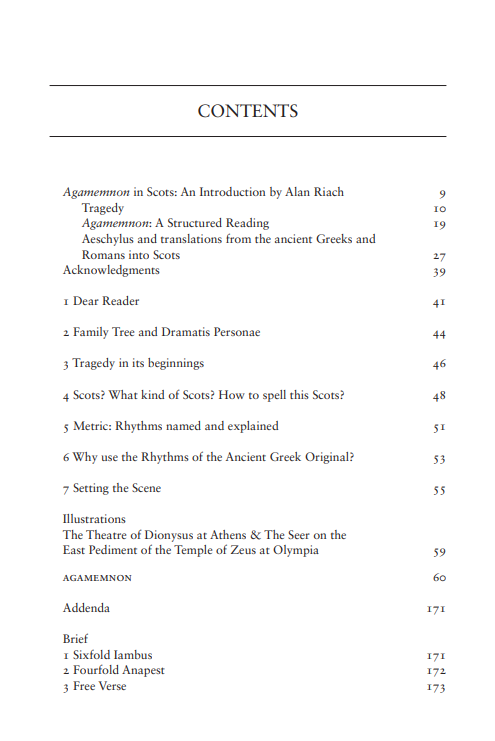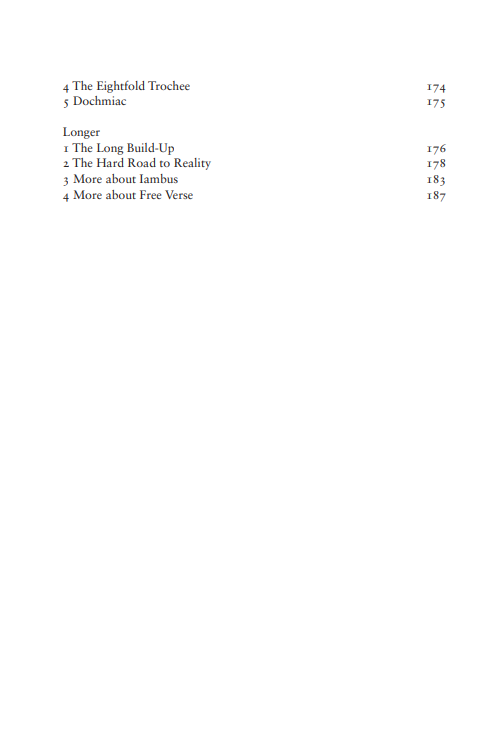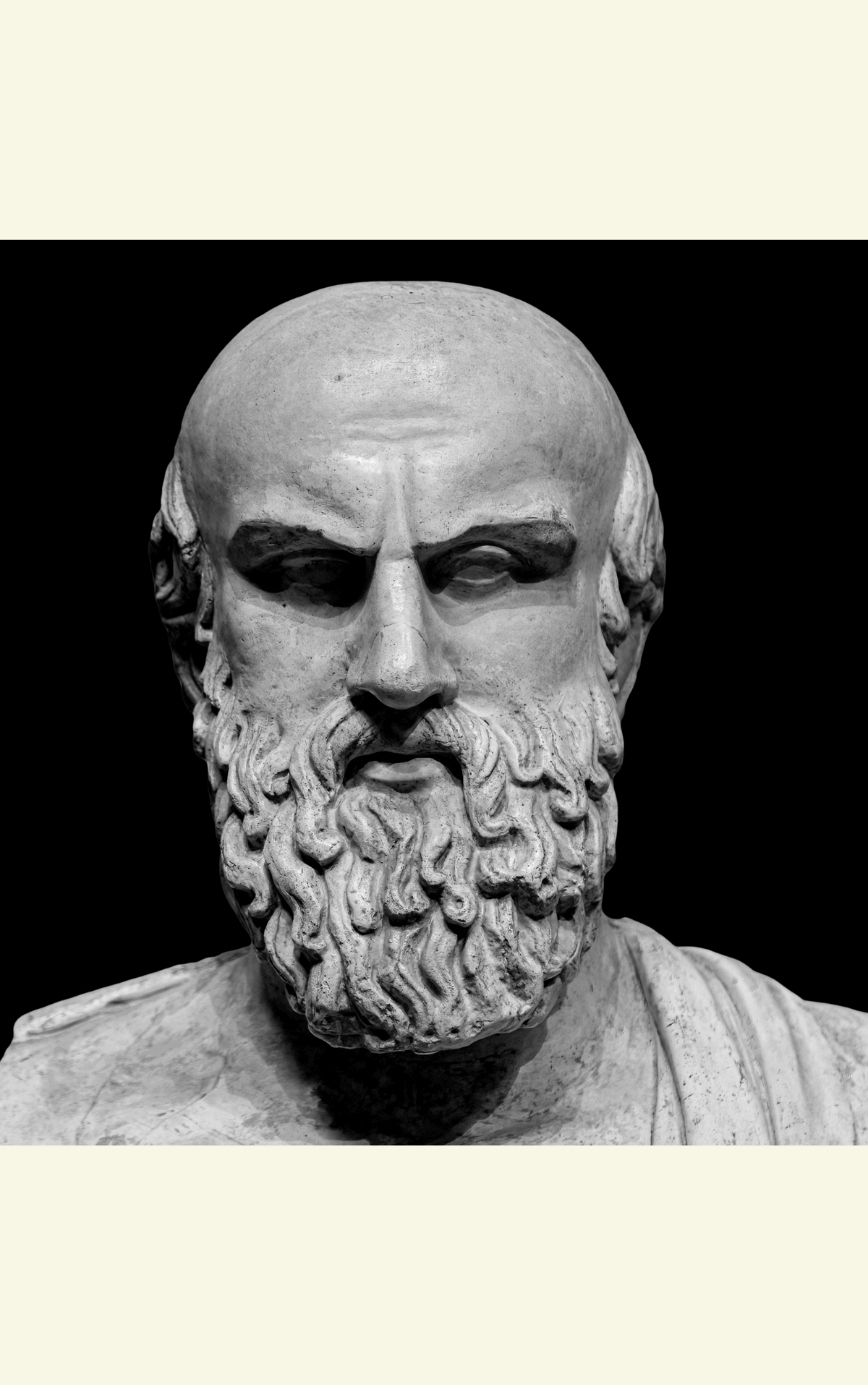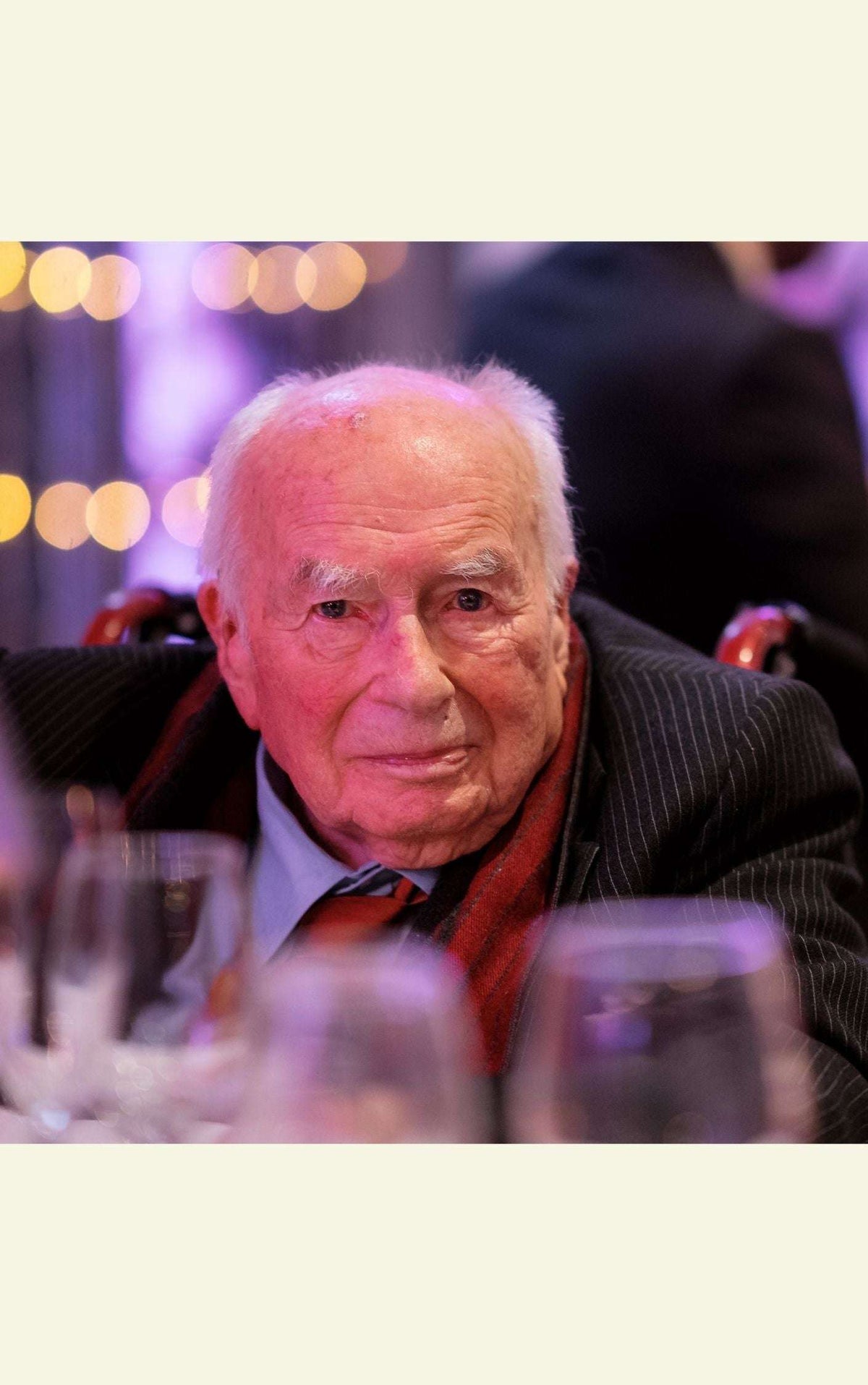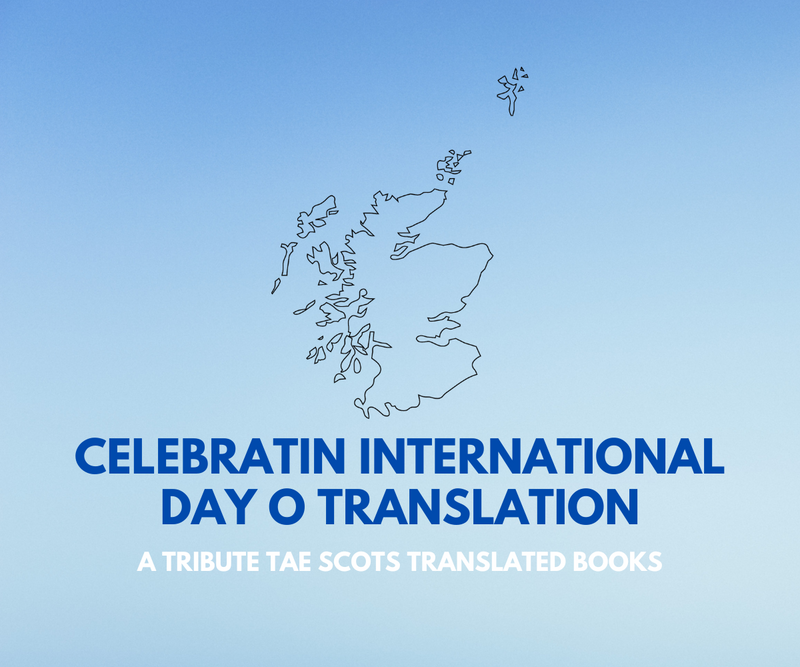Aeschylus’ Agamemnon in Scots
The Trilogy of Orestes: Part One
Introduction by Alan Riach
- Regular
- £16.99
- Sale
- £16.99
- Regular
- £16.99
- Unit Price
- per
About the Book:
Imray has taken immense care to use the same metre as one finds in the original Greek. To my ears, English does not lend itself so readily to this priority. Scots does. When I compare Imray’s translation with those of others, and make comment about its pace, rhythm and timbres, its tones and colours, the distinction I’m referring to is directly drawn from Aeschylus. From the introduction by ALAN RIACH
Transforming Aeschylus’ timeless epic Agamemnon into Scots, this groundbreaking translation transports readers into the heart of ancient Greece, infusing the classic tale with the lyrical beauty and cadence of the Scots language.
Ann sàe I wàtch yet, wỳtinn àye that sìgnal’s lìcht,
a blèezinn lòwe tae brìng us nèws awàa frae Tròy,
repòort o ’ts càptur. Wèill, ’t’s sae shè’s commàndit mè,
this dème wi mànlike plòys and mànlike hòpes they’ll thrìve.
William Imray’s masterful rendition captures the essence of the original while breathing new life into the narrative, making it accessible to modern audiences and lovers of Scots literature alike.
Aeschylus’ Agamemnon depicts king Agamemnon’s return from the Trojan War and his murder by his wife, Clytaemestra, as revenge for sacrificing their daughter, Iphigenia. The play explores themes of justice, revenge and the cycle of violence within the House of Atreus, laying the groundwork for the subsequent plays in the Oresteia trilogy. It marks a significant evolution in Greek drama, reveals the fundamental origins of western democracy and is one of the greatest works in world literature.
Reviews:
This is a magnificent achievement, William Imray’s translation, Alan Riach’s Introduction, and Luath Press, to bring it to fruition. And as we’ll all agree, Aeschylus’ in the first place. I hope it reaches receptive readers and listeners – and theatre folk. How wonderful it will be to see-and-hear it staged.
ADRIAN POOLE, Professor Emeritus, Faculty of English, University of Cambridge
One can’t deny that Aeschylus was a brilliant playwright. EMMA BERGE, British Theatre Guide on Aeschylus
If it cannot be proved that Aeschylus ‘invented’ tragedy, it is clear that he at least set its tone and established a model that is still operative. BRITANNICA on Aeschylus
About the Author:
 AESCHYLUS (c. 525/524 – c. 456/455 BCE) was an ancient Greek tragedian, often referred to as the father of tragedy. Aeschylus lived during a period of significant cultural and political development in Greece. He is celebrated for expanding the traditional drama format by introducing a second actor, thereby creating opportunities for complex dialogue and interaction among characters, which profoundly influenced the structure of Greek theatre.
AESCHYLUS (c. 525/524 – c. 456/455 BCE) was an ancient Greek tragedian, often referred to as the father of tragedy. Aeschylus lived during a period of significant cultural and political development in Greece. He is celebrated for expanding the traditional drama format by introducing a second actor, thereby creating opportunities for complex dialogue and interaction among characters, which profoundly influenced the structure of Greek theatre.
Aeschylus participated in the Persian Wars, notably fighting in the Battle of Marathon in 490 BCE, and these experiences likely influenced his work. His surviving plays explore themes of justice, divine intervention, and the human condition with a deep moral and philosophical undertone. His innovations in stagecraft, the use of the chorus and the introduction of elaborate costumes and stage machinery set a new standard for theatrical productions. Over his lifetime, Aeschylus is thought to have written around 70 to 90 plays, though only seven have survived to modern times. He was revered in his time, winning the prestigious City Dionysia dramatic competition multiple times. His work not only shaped the future of Greek drama but also laid the groundwork for Western literature and theatre. Aeschylus's legacy endures as a testament to his mastery of the tragic form and his profound influence on the evolution of drama.
 WILLIAM IMRAY grew up in a home where Scots was the spoken language. His mother’s father was the chief male influence, a monumental mason in wood and stone, a designer of gravestones, whose enthusiasm for Robert Burns gave William from an early age encouragement to learn, recite and perform Burns’s poems and songs. He later learned a number of languages, concentrating his delight in their poetry and song traditions across centuries, and carried into his teaching of Greek and Latin a predilection for the ancient classics which is even less fashionable or acceptable in the 21st century than it was in the 20th century, when he was teaching. He took early retirement when the writing of poetry in Scots and English was beginning to occupy his attention more eagerly than the teaching which was his profession. His poems were published in Lines Review, Orbis, Outposts, Prospice, the Aberdeen Free Press and Journal and Leopard Magazine, and his first published book of poems, Fool’s Cycle, appeared in 1989.
WILLIAM IMRAY grew up in a home where Scots was the spoken language. His mother’s father was the chief male influence, a monumental mason in wood and stone, a designer of gravestones, whose enthusiasm for Robert Burns gave William from an early age encouragement to learn, recite and perform Burns’s poems and songs. He later learned a number of languages, concentrating his delight in their poetry and song traditions across centuries, and carried into his teaching of Greek and Latin a predilection for the ancient classics which is even less fashionable or acceptable in the 21st century than it was in the 20th century, when he was teaching. He took early retirement when the writing of poetry in Scots and English was beginning to occupy his attention more eagerly than the teaching which was his profession. His poems were published in Lines Review, Orbis, Outposts, Prospice, the Aberdeen Free Press and Journal and Leopard Magazine, and his first published book of poems, Fool’s Cycle, appeared in 1989.
 ALAN RIACH (b.1957) Poet and Professor of Scottish Literature, Glasgow University. Born Airdrie, Lanarkshire, studied at the Universities of Cambridge and Glasgow, worked at the University of Waikato, New Zealand, 1986-2000, returning to Scotland 2001. Books include poetry: The Winter Book (2017), Homecoming (2009), Wild Blue: Selected Poems (2014), The MacDiarmid Memorandum (2023); criticism: Representing Scotland (2005), Hugh MacDiarmid’s Epic Poetry (1991), and co-authored with Alexander Moffat, Arts of Resistance: Poets, Portraits and Landscapes of Modern Scotland (2008), described in the TLS as ‘a landmark book’. Luath Press also publish his 734-page Scottish Literature: An Introduction (2022), described in The Times as ‘magisterial’.
ALAN RIACH (b.1957) Poet and Professor of Scottish Literature, Glasgow University. Born Airdrie, Lanarkshire, studied at the Universities of Cambridge and Glasgow, worked at the University of Waikato, New Zealand, 1986-2000, returning to Scotland 2001. Books include poetry: The Winter Book (2017), Homecoming (2009), Wild Blue: Selected Poems (2014), The MacDiarmid Memorandum (2023); criticism: Representing Scotland (2005), Hugh MacDiarmid’s Epic Poetry (1991), and co-authored with Alexander Moffat, Arts of Resistance: Poets, Portraits and Landscapes of Modern Scotland (2008), described in the TLS as ‘a landmark book’. Luath Press also publish his 734-page Scottish Literature: An Introduction (2022), described in The Times as ‘magisterial’.

